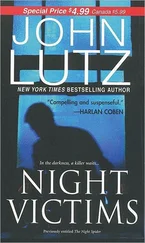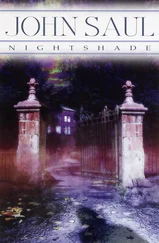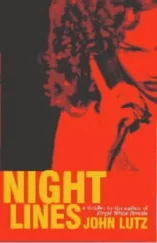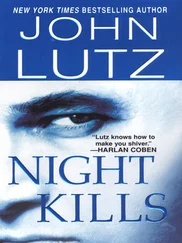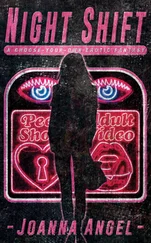Of course this hospital has one or two ghosts of its own, or so the stories go; and I suppose I’d enjoyed listening to those stories, and half-wanted to believe them. But it had taken this last encounter, inexplicable and frightening, to really set me thinking.
And now I’d started, it was proving very difficult to stop.
Getting on for four-thirty. Still dark outside, still silent; the town dead but dreaming in its sodium haze. But things would be stirring soon enough: lights coming on in bathrooms and kitchens, and the first commuters and early shift workers driving out on to the empty roads. It had been a quiet night so far, but, who knew, we might be able to fit in a good road smash before breakfast.
The thought drew my lips into a humourless smile, though I scarcely noticed it. Pushing the Off-duty to one side, I paused, surveying the desktop clutter – then reached for this week’s copy of Nursing Standard , and the article on management in A&E I’d been trying to take in. I picked the mag up; and put it down again. Something else was nagging at me now – reawakened, I knew, by the memories I’d been brooding on. I could always try ignoring it, of course; I’d tried before. But it never seemed to do much good.
Still clutching my cooling mug (Sister’s taste for iced coffee was a departmental in-joke), I left the office and wandered down the corridor towards reception – pausing at Utility to look in on Mike and Brenda at their stocktaking. Tonight of all nights I was glad to find them still refreshingly cheerful, even at this ungodly hour.
‘Everything okay?’
‘Couldn’t be better,’ Mike grinned. ‘We can get on with our work without bloody patients interruptin’ us all the time.’
He made a note on his clipboard and resumed his rummaging in the wall unit; the sleeves of his white nurse’s coat rolled back to the elbows, and his tie hanging slack. The casual touches somehow made him look all the more professional, but that was Mike for you. ‘So laid back he’s bloody horizontal’, as one locum medic had complained to me: one too full of his own importance to recognize that Michael Shannon was every inch the staff nurse his blue epaulettes proclaimed.
Brenda carried on with her own inventory, smiling quietly to herself. I reckoned the two of them had been making eyes at each other just before I’d appeared – which was fine by me, because Mike had been paying me quite a bit of attention of late, and I’d got the distinct impression he was shaping up to ask me out. He was a nice bloke, too – and I didn’t like the idea of him wasting his time.
‘Seen Fran?’ I asked.
‘She’s around. I told her she could give the blackboard a clean if we stayed quiet.’
‘Michael. We haven’t had anyone in for three hours, it’s already clean.’
‘Well I suggested she could chalk in the numbers, then wipe it again …’
Staff Nurse Frances Stansfield was our newest addition. She’d get used to him.
Leaving them to it, I continued on through the department – very aware of the stillness around me, and the bleakness too: that cold hospital aura, honed by bright light reflecting off sterilized surfaces and bare polished floors. I passed the unlit Resus room, and the row of parked trolleys at the ambulance bay, before turning left into the silent reception area – unmanned at this hour, since we’re only funded for clerical staff from eight p.m. to midnight. The front office was in darkness, save for the dim, ghost-green glow of the two VDUs at the desk. Beyond the receptionists’ windows, the waiting area itself seemed over-lit and very empty, a long room filled with rows of standard-issue seating – moulded plastic chairs which, as Mike insisted on pointing out, came in the tasteful NHS colour choice of bile green, puke orange, pus yellow and brain grey. Some were still strewn with old magazines from the reading rack: creased Bellas and dog-eared Cosmos . At the far end, the night pressed cold against the closed double doors.
I was still trying to kid myself that I was just killing time as I went into the office and took a seat in front of the nearer VDU. I didn’t bother with the light; I could almost feel my face soaking up the green-screen glow. And for a long moment I just sat there, staring, as if mesmerized by the endlessly blinking cursor. Then I leaned forward and typed in a name, watching it spell itself out across the screen.
KAUFMANN, JOSEPH
The computer beeped, and flashed up a request for further information. I had it ready, knew it now by heart.
D.O.B. – 29/07/32.
ADDRESS – NFA
DATE ADMITTED – 14/06/93
The drive whirred quietly, and in another moment the patient admission data was unscrolling before me. Joseph Karol Kaufmann, age 60, no fixed address, no GP. Admitted by ambulance 21:54. Died in department 22:16.
There was other info too, and various coding references; but that was the gist. Somehow it didn’t quite convey the impact of the event. It had all seemed a routine admission to start with, to be sure. But it wasn’t. Oh no.
Ambulance Control had – given advance warning: collapse coming in, severe chest pains. I’d finished taking the details of pulse and b/p over the phone, and handed the scribbled note to Kathy Jones, who was the doctor on for that night, as we made our way to Resus. From the way she squinted at it, running her free hand back into her dark, tangled hair, I got a hint of just how tired she was; normally she never let it show.
‘Is he conscious?’
I nodded. ‘Bit delirious, apparently. Look like an MI to you?’
‘Um. Probably. We’ll get him wired up as soon as he’s in.’
The ambulance arrived a couple of minutes later, and I went out to meet it, hugging myself in the chill night air as I watched the crew unload. The man on the trolley looked wasted and gaunt, his face almost paler than the pillow. We wheeled him in through the ambulance doors, bypassing the waiting area’s walking wounded; one or two people glimpsed us, and stood up to gawp.
On into Resus, where the routine began to unfold around him with the quiet confidence of endless practice. We transferred him across to our own trolley, and Karen and I sat him up and helped him off with his coat and shirt – from the state and smell of them, the bloke was in off the streets – while Mike and Kathy set about preparing the ECG. I spoke to the ambulancemen as I worked, checking details; Karen kept talking to the patient, softly and calmly, trying to ease the panic that shone in his frantic eyes.
Helen Wright was at my elbow, less the wide-eyed student by now and anxious to help. I gave her the clothes to bag up, calling goodbye over my shoulder to the ambulance crew as they left. See you again, lads … The electrodes were already pasted to our patient’s scarred and bony chest, and Kathy was studying the readout. ‘How’re we doing?’ I asked.
I got the impression she wasn’t quite sure. But after fingering her way through the length of readout tape, and listening to his heart sounds again, she nodded to herself, and glanced across.
‘MI. We’ll make sure he’s stable, then get him upstairs to Coronary Care. Will you let them know, Rachel?’
I was already on my way over to the phone, handing my drug keys to Mike as I passed. ‘Diamorph?’ he asked, and I nodded.
‘We think you’ve had a myocardial infarction,’ Kathy was telling the patient, speaking slowly and clearly. ‘A minor heart attack. We’re going to have to admit you for …’
The man looked at her then, and that look left even Kathy lost for words. In the midst of that pale, sweating face, his eyes were glazed and staring – and the despair in them was almost frightening. Deep in his throat, he gurgled.
Читать дальше


